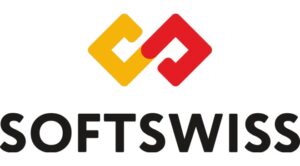Key Moments:
- A draft bill submitted on 23 September targets a phased decrease in Estonia’s online gambling tax rate to 4% by 2029
- The proposal seeks to enhance Estonia’s attractiveness for international gambling operators
- Some parliamentarians have raised concerns about the effectiveness of tax cuts without broader regulatory reforms
Tax Reform Proposal Submitted
Estonia could soon see a significant transformation in its online gambling landscape, following a new legislative initiative. Members of the Reform Party and Eesti 200 have presented a bill to the Riigikogu that aims to systematically lower the online gambling tax rate by 0.5 percentage points per year, ultimately reaching 4% by 2029.
The bill, spearheaded by Reform MP Madis Timpson, intends to attract global iGaming operators and solidify Estonia’s image as a progressive market for licensed remote gambling. Timpson has described the concept as a pathway to creating a “remote gambling paradise,” with the additional revenue earmarked for cultural and athletic infrastructure.
Intentions Behind the Reform
Proponents of the measure believe that a steady reduction in the tax rate would elevate Estonia’s competitiveness relative to other European Union jurisdictions, where online gambling companies often grapple with heavier compliance expenses and restrictive frameworks.
Currently, Estonia accommodates approximately 30 licensed online gambling operators. Notable local brands like OlyBet operate alongside international names such as Bet365, Unibet, and Betsafe. These operators use their Estonian licenses to engage not only the local market but also players from neighboring countries. According to research by Boonuspart, the Estonian online gambling sector is on track for an annual growth of 3% leading up to 2029.
Regulatory Climate and Government Stance
The proposed tax adjustments align with ongoing governmental efforts to modernize rather than restrict the gambling sector. Earlier in the year, the Ministry of Finance indicated that it would not pursue broad new limitations, focusing instead on clarifying guidelines around new formats such as e-instant lotteries and cryptocurrency-based games. Estonia’s regulatory environment, highlighted by robust advertising regulations and the national self-exclusion platform HAMPI, is set to remain foundational for consumer protection.
Discussion and Outlook
While coalition representatives have expressed strong support for the bill, discussions in Parliament have brought forth differing opinions. Several members of the Finance Committee have questioned whether phased tax reductions alone are sufficient to draw interest from major international brands. They caution that long-term regulatory certainty could ultimately weigh more heavily in operators’ decision-making than incremental tax changes.
Should the proposed reform pass, it would further entrench Estonia’s status as a business-friendly jurisdiction for online gambling operators. This move stands in contrast to other countries within the European Union, such as Finland, where the regulatory environment appears to be shifting toward greater restriction.
| Year | Proposed Tax Rate (%) |
|---|---|
| 2024 | Not specified |
| 2025 | Not specified |
| 2026 | Not specified |
| 2027 | Not specified |
| 2028 | Not specified |
| 2029 | 4 |
- Author


